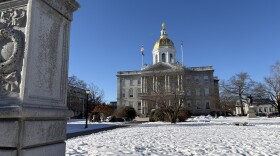At the tail-end of the section that opens New Hampshire’s ten-year energy strategy, released Tuesday, there are three paragraphs that acknowledge the issue which has been dominating the regional energy conversation. During the winter prices spike because natural gas electricity plants have been built and homeowners have converted to natural gas for heating and the region’s network of gas pipelines has not expanded as demand has grown.
While noting that the state must continue to take part in regional efforts to clean up the energy supply and bring down costs, it also notes, “This strategy focuses on those actions that the State can take to achieve our goals of cleaner, more diverse, and more affordable energy.”
While New Hampshire policy makers have only limited control over the regional energy picture, this 10-year strategy lays out specific recommendations for what state-lawmakers and regulators can do to lower costs and reduce emissions.
Those recommendations include stabilizing the incentives offered under the Renewable Portfolio Standard (RPS), the state’s primary incentives for renewable energy, ramping up and streamlining the state’s energy efficiency programs, and improving infrastructure for charging electric vehicles.
The strategy notes “frequent changes to the RPS in recent years have disrupted the [renewable energy] market’s development,” and that the penalty utilities pay for not reaching the state’s renewable energy goals is set lower in New Hampshire than in the rest of New England. This has led “energy developers to focus on those states” and passing New Hampshire by.
The strategy calls on the Public Utilities Commission to set specific targets for the state’s energy efficiency programs, and ramp those targets up until the programs “achieve all cost effective efficiency over a reasonable time frame.”
The report also suggests tax incentives could be offered to businesses that install electric vehicle charging stations, and that state agencies could lead by example by beginning to purchase electric cars.
In a statement Governor Maggie Hassan called these “concrete ways to help reduce energy costs, create jobs, protect our natural resources and improve reliability and diversity.”









